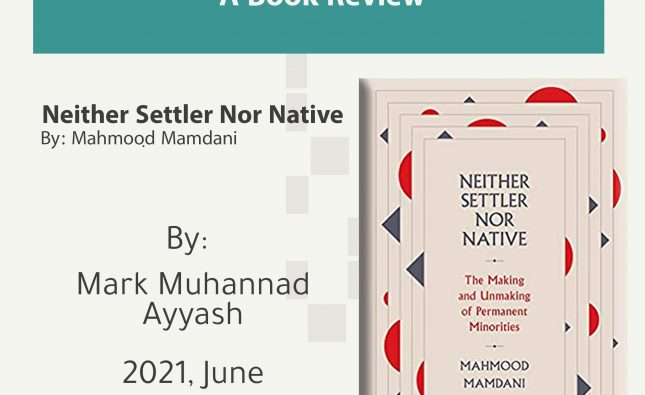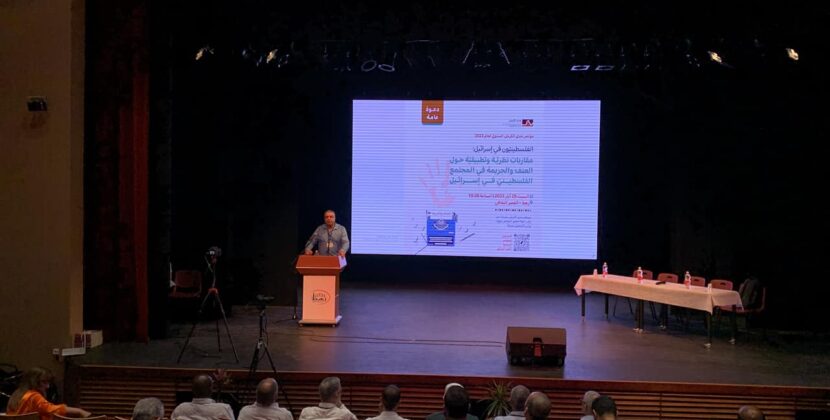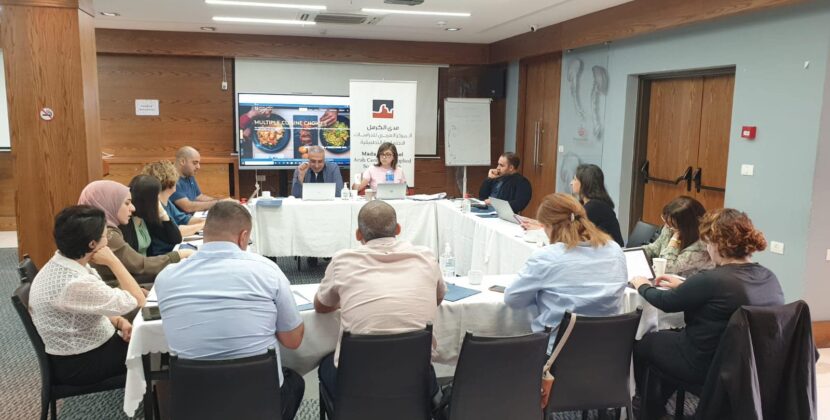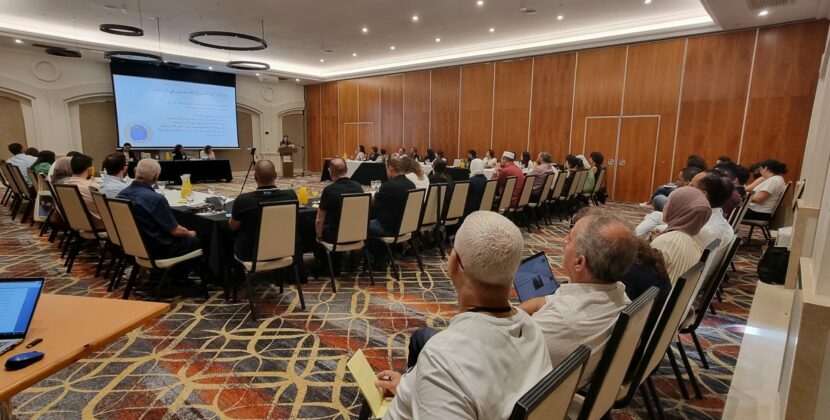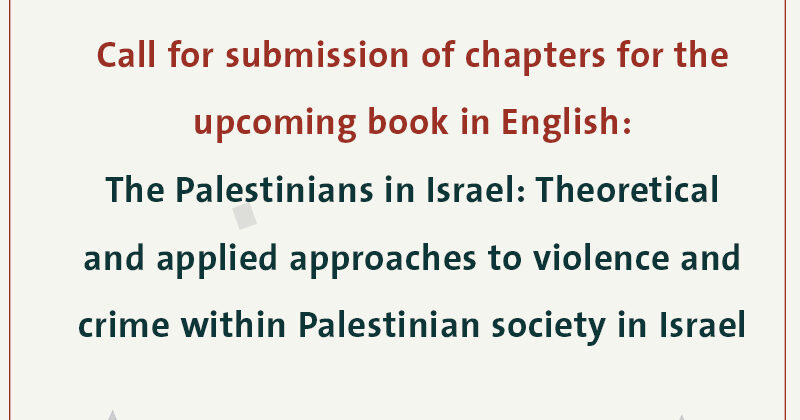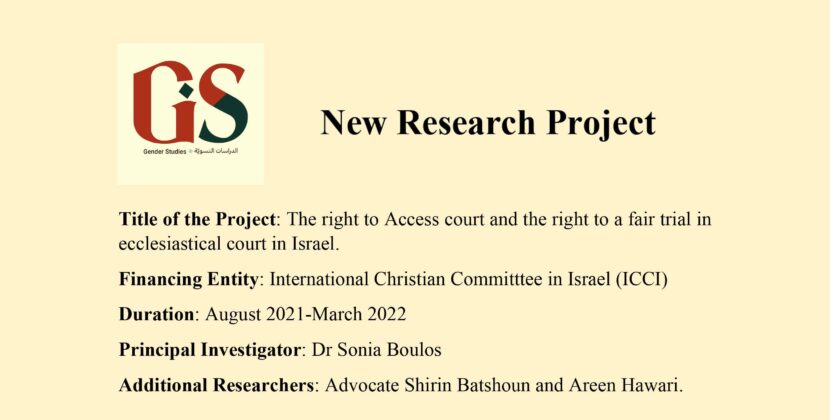The latest issue of Borderlands, a cutting-edge refereed electronic journal aimed at showcasing transdisciplinary social science and humanities research, features editing and contribution from key individuals in Mada al-Carmel. Nadera Shalhoub-Kevorkian, director of Mada’s Gender Studies Program, edited the volume, while both Shalhoub-Kevorkian and Mada General Director Nadim Rouhana contributed articles to the issue. The special issue was based on a workshop held in occupied East Jerusalem and organized as part of a joint project between Mada al-Carmel and Tufts University, entitled “The Fusion of Religion and Nationalism Project” and supported by the Luce Foundation.
Entitled “The Politics of Suffering,” the issue focuses on the embodiment of suffering and pain as a result of the legacies and ongoing realities of colonialism, settler-colonialism, and violent nationalisms. It features scholarship related to a wide range of geographic locales, including South Asia, the former Yugoslavia, Australia, North America, and Palestine.
As Shalhoub-Kevorkian explains in the introduction, the idea for this issue arose organically from the workshop mentioned above, in which participants not only dealt with critical academic work on settler colonialism and suffering, but also encountered such themes more directly by meeting with Palestinians facing eviction in the neighborhoods of Sheikh Jarrah and Silwan. Similarly, the issue’s various articles resist a divide between academic scholarship and active involvement in the world, and are informed by the lived experiences of those facing and resisting oppression.
Nadera Shalhoub-Kevorkian’s article, entitled “Criminalizing Pain and the Political Work of Suffering: The Case of Palestinian ‘Infiltrators’,” analyzes the work of suffering as it manifests itself in the oral testimonies of Palestinians who managed to return home in the aftermath of the 1948 Nakba, which displaced hundreds of thousands of Palestinians. She argues that the Israeli state’s criminalization of these returnees as ‘infiltrators’ serves as a means of legally legitimating the practice of population transfer. She notes that the Palestinian struggle for return and against further expulsion is ongoing, with Israel continuing its efforts to inscribe further suffering over Palestinian bodies, spaces, and lives.
Nadim Rouhana’s article, entitled “Homeland Nationalism and Guarding Dignity in a Settler Colonial Context: The Palestinian Citizens of Israel Reclaim Their Homeland,” examines the ways in which Palestinians assert a connection with their homeland in the face of years of Israeli indignities and efforts at erasure. He focuses particularly on the form of “homeland nationalism” articulated by Palestinian citizens of Israel, who remain steadfast in expressing their (non-exclusive) right to the land despite the existing reality of exclusive Israeli control.
Additional articles in the issue deal both with topics directly related to Palestine and with themes drawn from disparate geographic contexts. Rosemary Sayigh addresses suffering in Palestinian refugee camps; while Rema Hammani focuses her analysis on the Israeli checkpoint. Sarah Ihmoud goes on to consider the 2014 act of racialized terror committed by Israeli settlers against Mohammed Abu-Khdeir. Goldie Osuri interrogates connections between a 2012 gang rape case in Delhi and sexualized violence in Kashmir; while Suvendrini Perera discusses atrocities against Tamil civilians in the final stages of Sri Lanka’s civil war and considers the role and limitations of global institutions of justice. Following this, Joseph Pugliese analyzes suffering in the context of Israeli technologies of violence implemented in the occupied zones of Gaza and East Jerusalem. Jasbir Puar considers bodily violence by analyzing what she refers to as the Israeli state’s “right to maim”; while Sunena Thobani deals with violence against indigenous women in Canada. Dino Abazovic considers the fusion between religion and nationalism in Bosnia and Herzegovina, both during ethnic conflict and in its aftermath. Reflecting the international scope of the various contributions to the journal, Magid Shihade concludes the issue by arguing that Zionist settler colonialism should be understood in its global dimension and not on a purely local or regional basis.
By editing and contributing to this issue of Borderlands, Mada’s researchers drew connections between Palestine and other settler-colonial contexts or instances involving the entanglement of nationalism and religious claims. Mada al-Carmel’s research and publications situate Palestinian issues within international discussions of homeland minority rights, settler-colonialism, racism, identity, and democracy in multi-ethnic states.
This issue of Borderlands is accessible in full here.





